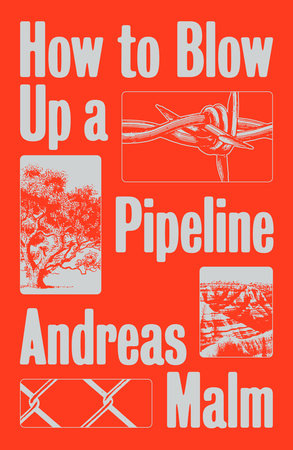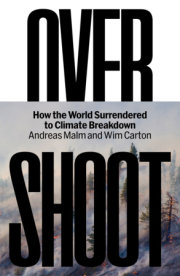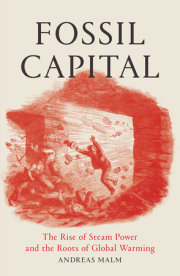"A powerful sketch of a political theory for a time of climate change."
—David Wallace-Wells, author of The Uninhabitable Earth
"The definitive deep history on how our economic system created the climate crisis. Superb, essential reading from one of the most original thinkers on the subject."
—Naomi Klein, author of This Changes Everything and The Shock Doctrine
"The best book written about the origins of global warming ... Like Naomi Klein's This Changes Everything, Fossil Capital trenchantly demonstrated that capitalism and capitalists are responsible for climate change."
—Michael Robbins, Bookforum
"How to Blow Up a Pipeline is a challenge to the left, and an important one."
—John Foster, The Battleground
"A short and gripping manifesto which aims to wrench the climate movement out of its complacency"
—Bright Green
"Timely ... Malm delivers the essay in his usual lucid and fiery style"
—Ecologist
"One of the most important things written about the climate crisis."
—Wen Stephenson, LARB
"A profoundly necessary book"
—Scott W. Stern, LARB
"Advocates powerfully against despair and powerlessness."
—Tatiana Schlossberg, New York Times
"Written passionately...Malm argues that it may be too late to avert climate crisis, but it is far from too late to ameliorate suffering."
—Sawarin Suwichakornpong, Bangkok Post
"Malm offers a critical, passionate and hopeful assessment of where it might go next. Malm's refreshing humanist ethos combined with his Marxist radicalism make him one of the most exciting contemporary writers on the climate crisis, this forceful new entry into his repertoire is no exception, though perhaps a different beast from his more academic work."
—Political Economy Research Centre
"Refreshing and provoking"
—It's Freezing in LA
"How to Blow Up a Pipeline makes a strong case for looking beyond non-violent activism"
—VICE
"A humble and nuanced case... it’s hard to read this book without daydreaming about sabotaging the private jets of the ultra-rich."
—Tim DeChristopher, Yes Magazine
"While the book does not live up to its titular promise of providing instructions to detonate a pipeline, it does make an unflinching case for carrying out such activities in advanced capitalist countries."
—James Wilt, Canadian Dimension
"Malm [has] captured the rising fury of climate activists"
—Pilita Clark, Financial Times
"Impossible to dismiss"
—David Wallace-Wells, Times Literary Supplement
"Malm is right. Shunning all violent acts will only prolong the worst. No new fossil fuel infrastructure can be created, and we need, as a society, to dismantle what we already have"
—Devi Lockwood, VICE
"By ruling out direct action, the climate movement robs itself, in Malm's view, of its only serious means of leverage."
—Adam Tooze, London Review of Books
"Bracing"
—Financial Times
"If you want to do something about the climate crisis instead of wallowing in despair, there's no better place to start than Andreas Malm's short treatise on the virtues of eco-sabotage. Provides a radical sort of hope."
—Abigail Weinberg, Mother Jones
"Malm calls for the formation of a radical flank to the popular climate movement...[he] finds the peaceful discipline of the climate movement to be remarkable but stifling in its single mode of action, calling it gentle and mild in the extreme."
—James Mumm, Social Policy magazine
"An impassioned argument for climate activists to move beyond non-violent protests...Even for those who disapprove of How to Blow Up a Pipeline, it is a useful guide to the noisiest climate activist voices."
—Economist
"A seductively well-written and well-researched book that argues climate activists should abandon their longstanding "commitment to absolute non-violence", and instead "escalate" their campaign by "physically attacking the things that consume our planet", such as fossil fuel infrastructure."
—Andy Beckett, Guardian
"Dynamite"
—David Hughes, Time Out
"[A] persuasive and optimistic rebuttal of climate fatalism"
—Glasgow Guardian
"A rousing case for property destruction as a tactic in the pursuit of climate justice."
—Simran Hans, Guardian
"This is a book as weapon, a manifesto for forcing change framed by the legacy of the suffragettes' direct action, civil rights movement protests, anti-apartheid boycotts, national liberation armed striggles."
—Philosophy Football
"How to Blow Up a Pipeline ... makes a historically persuasive case for the need for disruptive social movements to create transformative change. It convinced me that we can no longer leave the problems of our time to simmer on the low flame of gradualism."
—Roman Krznaric, New Statesman















